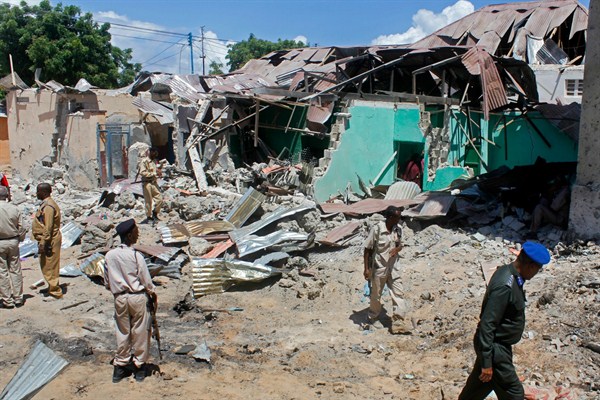The annual Fragile States Index was released last week, and no one will be surprised by the presence of South Sudan and Somalia, which remain the most fragile states in the world. By contrast, the indicators that middle powers, and even the United States and the United Kingdom, show some troubling signs of governance weakness might raise some eyebrows.
Diplomats, military officials and development economists have yet to crack the code on what to do about weak and failing states. State fragility is a chronic reality of international politics, and the responses to it have only rarely produced success stories. Diagnosing fragility is not too hard to do, using a range of indicators about a state’s overall stability and security conditions, the legitimacy of its governing institutions, its capacity to grow economically, and its ability to address any internal social and cultural divisions. But finding sustainable solutions to fragility remains elusive for the countries in crisis, their neighbors and outside actors.
For over a decade, the Fund for Peace has used a data-rich methodology to rank countries based on their fragility. South Sudan and Somalia, which have topped the list for several years running, once again headed this year’s index. They were joined in the worst category more recently by Syria and Yemen, among others. The surprise was that middle powers, and even the United States and United Kingdom, are showing signs of decline, according to the metrics that the fund uses.

